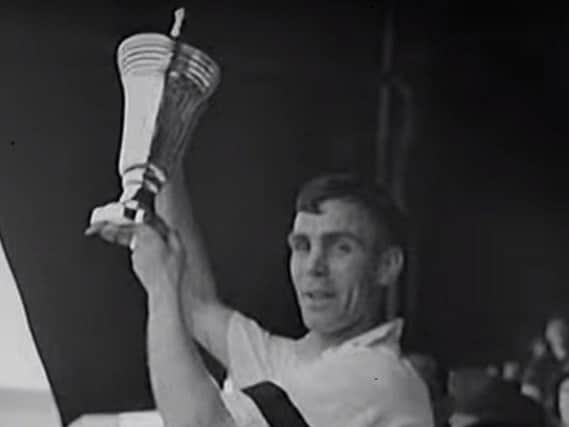When Preston North End won 'the Cup Final that wasn't'


Record books tell us it has been 79 long years since Preston North End last lifted a major English trophy.The club won the FA Cup in 1938, defeating Huddersfield Town at Wembley, with a squad featuring the likes of Bill Shankly, Tom Smith, and Bobby Beattie.It was a good period for the club, which had also reached the 1937 final, losing to Sunderland.As the decade drew to a close, the Football League began as normal on August 26, 1939, as war with Germany was not declared by Prime Minister Neville Chamberlain for another week.By then, Blackpool were top of the old First Division, having won their opening three games before the outbreak of hostilities and the Football League called time on the season.The government had imposed a travelling of limit of 50 miles to watch football, forcing the Football League to regionalise the league and cup competitions. To this day, appearances racked up in these temporary formats do not contribute to official statistics. The war really began to hit English football teams hard as large numbers of players and staff went off to join the armed forces. Wolverhampton Wanderers and Liverpool were among the most affected, losing 91 and 76 players respectively to conscription throughout the duration of the conflict, while North End lost 55.The FA Cup also fell victim to the conflict and was cancelled during the Second World War and thus the Football League War Cup was established, filling the void for fans.Preston made it to the second final of the War Cup in 1941, a game which was dubbed by Pathé as ‘the Cup Final that wasn’t’, after beating nearby Bolton Wanderers and Bury, Manchester City, Newcastle United and, most notably, Tranmere Rovers by a scoreline of 12 goals to one.War brought with it the threat to life and limb to these shores between September 1940 and May 1941, the Germans inflicted 127 large night raids on Britain. Of these raids, 71 were targeted on London.But in the face of adversity, football carried on and Preston North End faced Arsenal on May 10 and the teams came out for the first of the eventual two match affair at a blitz-threatened Wembley Stadium together, where they were greeted on the pitch by AV Alexander, First Lord of the Admiralty. The Lilywhites and the Gunners cancelled each other out in front of a crowd limited to 60,000 in North West London. Thanks to an assist from Tom Finney, who was yet to make his official debut, Andy McLaren opened the scoring for North End before Denis Compton equalised for Arsenal on the stroke of half time with his brother, Leslie, having missed a penalty for handball in the opening exchanges.Both sides played out a goalless, damp squib of a second half ,meaning a replay was required to settle the 1941 War Cup final. The second encounter to settle the 1941 final took place at Ewood Park, Blackburn, on Saturday May 31, where fans were queueing as early as five hours before kick-off to secure a seat in the ground, which was sure to be packed to the rafters.In front of an eventual crowd of 45,000, North End controlled the replay, feeling right at home in nearby Blackburn, but it was the London club who opened the scoring through a Frank Gallimore own goal.Preston then had Bobby Beattie, who was also a coach for North End at the time, to thank as he bagged a brace before the final whistle, ensuring the 1941 Football League War Cup trophy made the 11-mile journey west across Lancashire to Preston.The trophy was presented to Lilywhites skipper Tom Smith by the Football League president, WC Cuff, as the Rt Hon Lord Wigram, who was due to oversee this formality at Wembley, didn’t make the journey to Lancashire.With this cup triumph, Preston cemented their claim to be known as one of the best sides at the time with a league and cup double, the first of its kind in wartime Britain, following their success in the Northern Regional League that year.It may have been referred to as ‘The Cup Final that Wasn’t’, but that would have done little to dampen the memories and the spirit of the victorious players and the jovial fans who witnessed their wartime heroes lift a trophy, something not many clubs get to share with their fans.For them, it most certainly was the final that was.